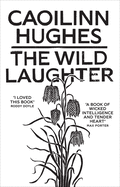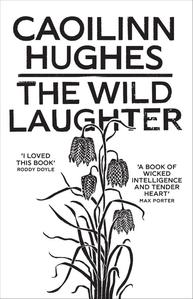
 Few nations felt the sting of the global recession that began in 2007 more than Ireland, when its roaring "Celtic Tiger" economy imploded. Caoilinn Hughes sets her second novel--a taut, acerbic family drama--against the backdrop of that economic cataclysm in her native land.
Few nations felt the sting of the global recession that began in 2007 more than Ireland, when its roaring "Celtic Tiger" economy imploded. Caoilinn Hughes sets her second novel--a taut, acerbic family drama--against the backdrop of that economic cataclysm in her native land.
Like many of his countrymen, farmer Manus Black (affectionately known as the "Chief") falls for the lure of a can't-miss investment in apartments in Spain and Bulgaria, only to lose all when the real estate market collapses. Overnight he's transformed from a comfortable, if hardworking, landowner in western Ireland to an impoverished debtor staring financial ruin in the face in a heavily mortgaged house "that had gone up in value by three hundred percent in a decade and dropped nearly that again in year." By the fall of 2014, his financial woes are compounded by the relentless advance of terminal cancer, an affliction that leads him to hint to his sons, Cormac and Doharty ("Hart"), the novel's narrator, that he wants their assistance in hastening his departure from the world.
The Black siblings are loyal to their imposing father, and dutifully go about trying to carry out his last wishes. But when their hastily researched and haphazardly executed plan goes awry, legal consequences ensue, compounding the tragedy of Manus's death, especially for his widow, Nóra, a former nun, and heightening the tensions that frequently bubble to the surface in the family. The novel's climactic scenes play out in a sterile Dublin courtroom--far from the earthy simplicity of the Blacks' rural village--where the unyielding dictates of the law clash with love and duty to produce a morally ambiguous ending. Though it's too artful a work of fiction to be considered purely a polemic on the subject, The Wild Laughter does serve as a provocative brief in favor of euthanasia.
With frequent flashes of humor, "the thing austerity couldn't touch," Hughes skillfully captures the flickering tension between brothers separated by two years. Cormac is launched on the path to conventional success. Hart, whether through stunted ambition or simply an inability to shed the sense of filial obligation, becomes entangled in the bonds of family and land, even as his girlfriend, Dolly--a part-time actress he first met when she was involved with his older brother--attempts to lure him away.
As she demonstrated in her first novel, Orchid & the Wasp, Hughes is both an incisive observer of contemporary life and someone who's able to penetrate its surface to explore more enduring themes. The Wild Laughter is a compact but potent novel that explores its themes of love, loyalty and sibling rivalry with keen insight. --Harvey Freedenberg, freelance reviewer
Shelf Talker: In Caoilinn Hughes's keenly observant second novel, a dying father's last wish provokes a family crisis.

